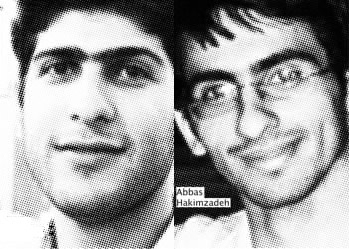In oppositional politics, there are different ways of arriving at 'what is to be done', both practically and theoretically. In the U.S., one frequently practiced method is to watch the mouths of the imperialists and their ideologues and wait for them to say something or make some declaration, and then say the exact opposite and call that an anti-imperialist position; analysis is then retrofitted to justify the position.
The other way is to start from principles, observe the changes in reality, study the history of the social forces involved in those changes, and derive your own positions and demands, based on where you stand in the course of your struggles.
A lot of alarms have been ringing for the past four or five years, regarding interventionist strategies taken up by imperialist planners, in which under the guise of 'democracy building', truer aims of the American power elites (regime change where needed) are furthered by the CIA or any of the sixteen assorted intelligence agencies run by the U.S. (see: The Burbank Digest, for exposes on these people, especially George Soros, like this one on Moldova).
Large sums of money have been and are being spent on creating seemingly spontaneously grown citizens' organizations that shape and give direction to dissent among the populations over-lorded by governments not liked by the U.S. Such 'revolutions' as the 2003 Rose Revolution in Georgia, the 2005 Orange Revolution in Ukraine, or the 2005 Cedar Revolution in Lebanon -- are sighted as examples of this 'democracy movement' type of moving of pieces by imperialist game planners. It is natural that, in these half-covert operations, human rights are used as a wedge issue.
Because of this push by the right into the discursive and practical area of 'human rights', some western leftists have abandoned this area of advocacy when it comes to countries they perceive as being under attack by the imperialists, and therefore most talk of human rights violations in such countries has become taboo, since it allegedly paves the way for the continuation of the imperialist interventions, and subjugation of more natives around the world.
Leaving aside the unjustifiable presuppositions of such a stance, this position completely yields, uncontested, a major domain of class conflict to the dictates of the right wing ideologues, and leaves it completely up to the right wing fanatics to frame this issue. Though it seems easy to forget, it is important to bear in mind that most of the 'natives' have been living under brutal social conditions for a long time, otherwise imperialists would never be able to exploit their misery in the first place (and here I am talking about places where supposedly the imperialists are not the direct and immediate over-lords).
Ironically, the more militant members of what I call the 'Human Rights? Ba-Humbug!' faction, actually fight most vehemently against the advocates of human rights in countries like Iran! So we have a situation where Iranian secularists -- secular liberals, democrats and radical democrats, social democrats and socialists, supporters of student activists, labor and women's rights activists, and all others -- who for the past thirty years have been fighting for more rights in Iran, not only have a medieval theocratic setup with vast oppressive capabilities to fight, but now have the western leftists to fight as well!
This effectively amounts to the first ever anti-solidarity movement I know of, sort of launched by the western left! (It's only 'sort of', since none dares give it formal expression!) An innovation in 'socialist' surrealism!











